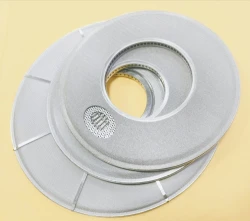Components and Types of Mechanical Filters
2024-06-15
Mechanical filters, in the context of various industries and applications, refer to devices or systems designed to physically remove solid particles or contaminants from fluids (liquids or gases). These filters work on the principle of trapping particles of certain sizes as the fluid passes through a porous medium or mesh. Here are the key aspects and applications of mechanical filters:
Components and Types of Mechanical Filters:
1. Filter Media:
- Mesh or Screen Filters: These use woven or non-woven materials with defined pore sizes to trap particles larger than the pore openings. They are effective for coarse filtration.
- Depth Filters: Made of fibrous materials or porous media that capture particles throughout their thickness, providing higher dirt-holding capacity compared to surface filters.
2. Filter Structure:
- Cartridge Filters: Compact units containing filter media folded or wound into a cylindrical shape. They are used in applications where space is limited and easy replacement is required.
- Bag Filters: Fabric bags made of filter media, used for larger-scale applications where high flow rates and dirt-holding capacity are needed.
3. Operation and Filtration Mechanisms:
- Sieving: Particles larger than the openings in the filter media are physically blocked and retained.
- Interception: Particles are captured when they come into contact with the filter media fibers or surfaces.
- Inertial Impaction: Particles are trapped due to changes in flow direction or velocity within the filter.
- Diffusion: Small particles collide and stick to the filter media due to Brownian motion and molecular forces.
Applications of Mechanical Filters:
- Industrial Filtration: Used in manufacturing processes to remove contaminants from liquids such as water, oils, chemicals, and beverages.
- Air Filtration: Filters are employed in HVAC systems, automotive engines, and cleanrooms to capture dust, pollen, and particulates from the air.
- Water Treatment: Filters are integral to water purification systems, swimming pools, and irrigation systems to remove sediments, debris, and microorganisms.
- Medical and Laboratory Use: Filters ensure sterility in pharmaceutical manufacturing, medical devices, and laboratory equipment by removing bacteria and particles.
Considerations for Selection:
- Particle Size and Efficiency: Choose a filter with pore size appropriate for the particles to be removed and desired filtration efficiency.
- Flow Rate: Consider the required flow capacity and pressure drop across the filter to maintain efficient operation.
- Material Compatibility: Select filter materials compatible with the fluid and environmental conditions (temperature, chemical compatibility).
- Maintenance and Replacement: Evaluate ease of maintenance, frequency of replacement, and cost considerations for filter cartridges or bags.
Advantages of Mechanical Filters:
- Reliable Filtration: Effective at removing solid particles and contaminants without altering fluid properties.
- Versatility: Available in various configurations and materials to suit different applications and industries.
- Cost-Effective: Initial investment and operating costs are generally lower compared to other filtration methods like membranes or electrostatic filters.
Mechanical filters play a critical role in maintaining cleanliness and quality in industrial processes, environmental control, and consumer products, ensuring that fluids and gases meet specified purity standards.



